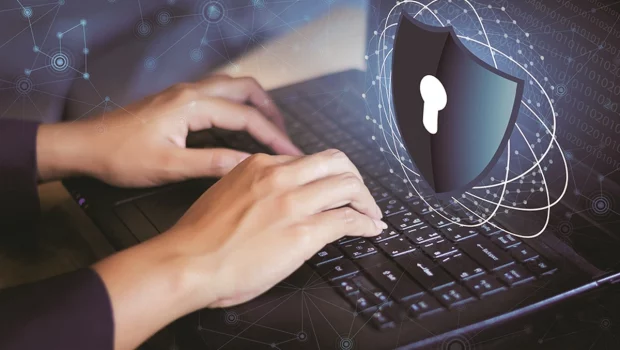The pivotal role of cybersecurity in healthcare and medical devices
By Shashidhar Rachuri
The pandemic underscored the need for a resilient healthcare system across the globe, given that even countries with good healthcare systems crumbled under the weight of the crisis. Recent years, especially since the covid-19 pandemic’s onset, have seen the global healthcare sector leapfrog in nearly every aspect – whether it’s market value, digitisation, or overall demand. The scenario in India isn’t too different, either.
In 2020, the Indian healthcare sector was valued at USD 280 billion, with the government looking to increase public expenditure on healthcare to 2.5% of the country’s GDP. Healthcare has also become an industry with one of the quickest rates of technology adoption and digitisation, which is a major boon for all stakeholders. However, it brings its fair share of challenges, especially in terms of security, making robust cybersecurity solutions imperative. To understand this better, let’s delve into the details.
Safeguarding crucial patient health data
Healthcare is one of the sectors that collects and stores vast amounts of data, especially patients’ data, that can be disastrous if it falls into the wrong hands. As opposed to a decade ago when this data was kept in thousands of physical files, it’s now stored in systems, making hospitals heavily reliant on computers. Cyberattacks on Protected Health Information (PHI), Personal Identification Information (PII), and other such programs that involve public health and personal data pose a major risk to patient safety and privacy.
For instance, loss of access to medical data and records due to a ransomware attack can result in disaster for the patient. So, planning a contingency and having a solid cybersecurity plan in place is paramount to protecting patient data at medical facilities. However, ransomware attacks aren’t the only breaches that can happen, so knowing the different kinds of cyberattacks helps the healthcare industry safeguard itself against them.
Types of cyberattacks
Malware/Ransomware: It is when fraudsters and cyber criminals block or stop a system, service, or network. For example, when a user clicks a dangerous link, it downloads an attachment to the system, which can stop the system or make it vulnerable for attackers to steal data. Installing antivirus software, using firewalls, ensuring your system is updated, and watching out for fake/risky links are some of the best ways to protect patient data and records from being accessed by unauthorised parties.
Phishing websites/links: Phishing is one of the most prevalent cyberattacks in the world. It’s a social engineering attack when a person impersonates another or shares fake information with another to gain access to confidential data. Leveraging anti-phishing toolbars, updating your password regularly, and being cautious and scrutinising the emails you receive can help prevent phishing attacks.
Cloud storage threats: Cloud storage is one of the safest, most cost-efficient, and most convenient ways to store data, especially for healthcare players. However, there are cloud storage threats one needs to know about where the PII and PHI stored without proper encryption can be subject to theft and tampering. Ensuring all data is encrypted and secure is of utmost importance to protect patient records and other crucial information.
DDOS attacks: DDOS (Distributed Denial of Service) is a cyberattack where the perpetrator makes a machine unavailable to users by disrupting services temporarily. In the healthcare sector, this can jeopardize the patient’s health and well-being severely. While there is no silver bullet for DDOS attacks, one can identify it through the website traffic, deploy firewalls and create a response plan to warrant seamless continuity.
Bolstering cybersecurity
Besides compliance with guidelines and regulations, healthcare organisations must implement certain practices to ensure resilient systems and the best cybersecurity. These include securing communication across all devices to prevent unauthorised access, protecting every bit of data stored, limiting access to files only to authorised professionals, and restricting physical access to files. It’s also essential for healthcare organisations to conduct security training programs and protocols to protect the organisation, patient data, and other confidential information in case of an anticipated cyberattack.
Further, implementing security controls like antivirus software, data backup, recovery, firewall, encryption, anti-theft devices, disaster recovery plans, etc., are a must. Following these will help make healthcare systems incredibly resilient to cyber threats and keep operations running like clockwork.
Summing up
India’s healthcare industry is set to register a growth spurt in the coming years. To enable this and avoid the system crumbling due to an unprecedented event, cybersecurity is vital. Healthcare organisations need to build a culture where employees are proactive defenders of patient data and other crucial information and expand protection coverage to build a robust ecosystem. A revolution is already underway, and the sooner cybersecurity is bolstered, the better.
(The author is a Director of Innovation & Growth, Noventiq India. Views expressed are personal and do not reflect the official position or policy of the FinancialExpress.com.)








Gloss